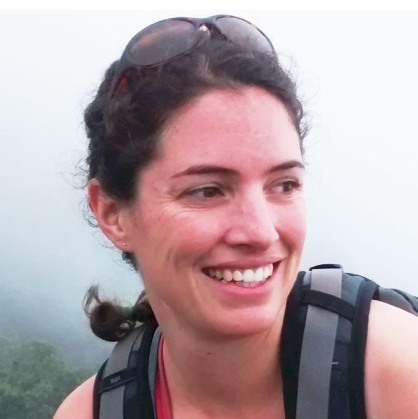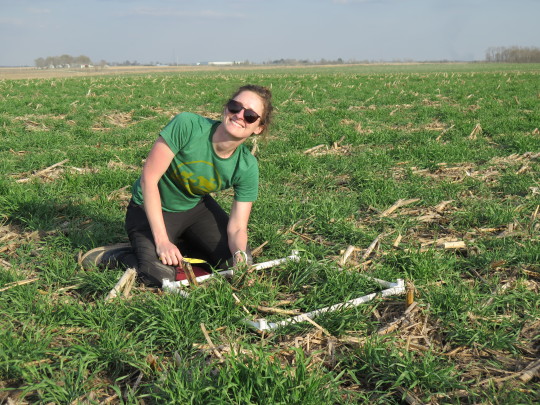Part of Anthropocene science is earth system science, the study of anthropogenic change of whole earth systems–the water systems, geological systems, ecosystems, and atmosphere–and their feedbacks with each other and human society. Historically earth system scientists have been a rare species at natural history museums, because they do not collect organismal specimens or valuable rocks. Instead they collect samples of air, water, microorganisms, and soil. But CMNH recognizes these scientists are key to understanding the Anthropocene and translating it to the public.

Two earth scientists have recently joined CMNH. Dr. Carla Rosenfeld will be the museum’s first curator of Earth Sciences. Rosenfeld’s work focuses on the microbial ecology of earth systems: how they naturally mediate the vast majority of water and soil chemistry and can be used to remediate pollution. For example, she is testing the potential for fungi to remove toxins from acid mine drainage.

Dr. Bonnie McGill is a science communication fellow with the Climate and Rural Systems Project (CRSP) in the Anthropocene Science Section. With CRSP she is working with rural communities to explore local climate change impacts, identify the social and ecological systems involved, and design community-level actions. Much of her previous work was in the Midwest studying how soil and water conservation in corn and soybean production impacted greenhouse gas emissions and nitrate pollution of rivers.
Bonnie McGill is a Science Communication Fellow at the Carnegie Museum of Natural History. Museum employees are encouraged to blog about their unique experiences working at the museum.
